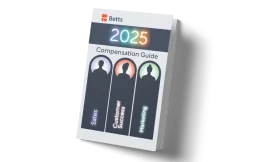There is substantial research that shows that diversity brings many advantages to an organization: increased profitability and creativity, stronger governance and better problem-solving abilities. Employees with diverse backgrounds bring to bear their own ideas, perspectives and experiences, helping to create organizations that are effective and resilient, and outperform organisations’ that do not invest in diversity.
A Boston Consulting Group study found that companies with more diverse management teams have 19% higher revenues due to innovation. This finding is significant for tech companies, start-ups and industries where innovation is the key to growth. It shows that diversity is not just a metric to be strived for; it is actually an integral part of a successful revenue-generating business.
Janet Stovall: How to get serious about diversity and inclusion in the workplace
Imagine a workplace where people of all colors and races are able to climb every rung of the corporate ladder — and where the lessons we learn about diversity at work actually transform the things we do, think and say outside the office. How do we get there? In this candid talk, inclusion advocate Janet Stovall shares a three-part action plan
Melinda Epler: 3 ways to be a better ally in the workplace
We’re taught to believe that hard work and dedication will lead to success, but that’s not always the case. Gender, race, ethnicity, religion, disability, sexual orientation are among the many factors that affect our chances, says writer and advocate Melinda Epler, and it’s up to each of us to be allies for those who face discrimination.
Fahad Saeed: The importance of using inclusive language
In this passionate talk, diversity trainer and activist Fahad Saeed addresses the persistent myth that inclusive language and acronyms create more barriers than they tear down. Sharing his own experiences as a gay Muslim man born to immigrant parents, he explains how redefining the constructs around personal identity can have positive repercussions in marginalized communities and beyond.
Mellody Hobson: Color blind or color brave?
The subject of race can be very touchy. As finance executive Mellody Hobson says, it’s a “conversational third rail.” But, she says, that’s exactly why we need to start talking about it. In this engaging, persuasive talk, Hobson makes the case that speaking openly about race — and particularly about diversity in hiring — makes for better businesses and a better society.
Rocío Lorenzo: How diversity makes teams more innovative
Are diverse companies really more innovative? Rocío Lorenzo and her team surveyed 171 companies to find out — and the answer was a clear yes. In a talk that will help you build a better, more robust company, Lorenzo dives into the data and explains how your company can start producing fresher, more creative ideas by treating diversity as a competitive advantage.
Temple Grandin: The world needs all kinds of minds
Temple Grandin, diagnosed with autism as a child, talks about how her mind works — sharing her ability to “think in pictures,” which helps her solve problems that neurotypical brains might miss. She makes the case that the world needs people on the autism spectrum: visual thinkers, pattern thinkers, verbal thinkers, and all kinds of smart geeky kids.
Rebeca Hwang: The power of diversity within yourself
Rebeca Hwang has spent a lifetime juggling identities — Korean heritage, Argentinian upbringing, education in the United States — and for a long time she had difficulty finding a place in the world to call home. Yet along with these challenges came a pivotal realization: that a diverse background is a distinct advantage in today’s globalized world. In this personal talk, Hwang reveals the endless benefits of embracing our complex identities — and shares her hopes for creating a world where identities aren’t used to alienate but to bring people together instead.
Priya Vulchi and Winona Guo: What it takes to be racially literate
Over the last year, Priya Vulchi and Winona Guo traveled to all 50 US states, collecting personal stories about race and intersectionality. Now they’re on a mission to equip every American with the tools to understand, navigate and improve a world structured by racial division. In a dynamic talk, Vulchi and Guo pair the personal stories they’ve collected with research and statistics to reveal two fundamental gaps in our racial literacy — and how we can overcome them.
Itay Talgam: Lead like the great conductors
An orchestra conductor faces the ultimate leadership challenge: creating perfect harmony without saying a word. In this charming talk, Itay Talgam demonstrates the unique styles of six great 20th-century conductors, illustrating crucial lessons for all leaders.
Ray Dalio: How to build a company where the best ideas win
What if you knew what your coworkers really thought about you and what they were really like? Ray Dalio makes the business case for using radical transparency and algorithmic decision-making to create an idea meritocracy where people can speak up and say what they really think — even calling out the boss is fair game. Learn more about how these strategies helped Dalio create one of the world’s most successful hedge funds and how you might harness the power of data-driven group decision-making.
Alice Goffman: How we’re priming some kids for college — and others for prison
In the United States, two institutions guide teenagers on the journey to adulthood: college and prison. Sociologist Alice Goffman spent six years in a troubled Philadelphia neighborhood and saw first-hand how teenagers of African-American and Latino backgrounds are funneled down the path to prison — sometimes starting with relatively minor infractions. In an impassioned talk she asks, “Why are we offering only handcuffs and jail time?”
